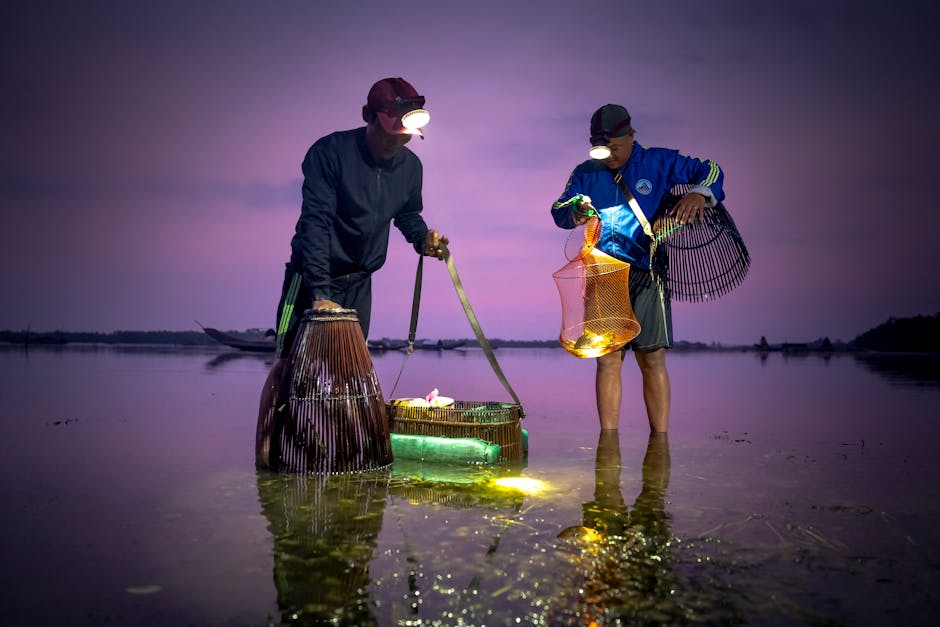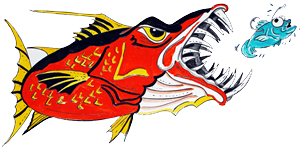Introduction to sea fishing seasons
You might be itching to cast your line out into the open sea and land an epic catch, but slow down, partner. You’ve got to know when the fish are biting. Just like hunting, sea fishing has its own seasons, and they can vary depending on what you’re fishing for and where in the grand blue you’re planning to drop anchor.
Most saltwater fish have times of the year when they’re more abundant or active, influenced by water temperature, tides, and spawning cycles. Take the mighty Striped Bass, strutting its stuff in early spring and fall, or the majestic Blue Marlin, showing off in the warmer months of summer.
To truly get the most out of your sea fishing charter, you need to hit the sweet spot—when the fish you’re after are most likely to be on the hunt themselves. This isn’t just about chance; it’s about understanding the patterns. So, before you slap on your sea legs, let’s have a straight shot about when the best times are to get out there for some real action.

Factors that influence sea fishing conditions
When you’re itching to reel in the big one from the deep blue, knowing what affects the sea fishing conditions is key to a successful trip. First off, tides wield a big stick when it comes to sea fishing. High tide tends to bring in the hungry fish, making it primo fishing time. Conversely, during low tide, you might find your line eerily quiet. Next up, the moon – its phase plays a surprising role. Full and new moons spice things up, often leading to better catches due to stronger tides. Don’t ignore the wind either. It stirs the surface, which can pull baitfish up and turn predators into opportunistic feeders. Season-wise, summer often means more active fish, especially in the early mornings or late afternoons when water temps are just right. Lastly, the water temperature itself is a solid contender – too hot or too cold, and the fish might give your bait the cold shoulder. Yeah, there are more factors, but getting these dialed in is a solid start to picking your charter day.
The prime time for booking a sea fishing charter
When you’re itching to reel in the big one on the open sea, timing is everything. The best time to book a sea fishing charter largely depends on what kind of fish you’re after. Generally, late spring through early fall offers the highest chances of a good catch due to the migration patterns and the spawning season of many fish species. You want to aim for that sweet spot when the fish are plenty but before the waters get crowded with every other angler looking to hook a winner. So, get in touch with the charter companies early, preferably a few months in advance, to secure your spot when the fish are biting. Remember, a local charter captain can offer specific advice tailored to the area’s peak seasons, ensuring you’re casting your line at the optimum moment.
Off-season vs. peak season sea fishing
When planning a fishing trip, knowing the difference between off-season and peak season can save you cash while still delivering a great experience. Peak season is when fish are most active and the weather is just right, making it prime time for charter businesses. You’ll be battling for space on the best boats and may pay top dollar for the privilege. Now, consider the off-season, the underdog of the fishing calendar. Sure, weather can be unpredictable, and some fish might have swum off to warmer waters, but this is when you can snag a deal. Fewer folks vying for a spot means more choice for you and potentially lower prices. Charities get a chance to breathe, and you might just get extra attention and tips from your captain. Temper your expectations though; the off-season can be hit or miss, so if you’re after the big one, be ready to possibly compromise. If you’re flexible and looking for value over victory, off-season sea fishing could be your perfect catch.
How weather affects sea fishing success
When you’re planning to hit the ocean for some quality sea fishing, weather takes the captain’s seat. It’s more than just about staying dry; it’s about the fish. See, fish are sensitive creatures. They respond to changes in temperature, pressure, and light. So, let’s dive into this. Calm seas and steady weather patterns get fish in the mood to feed. On the flip side, if a cold front’s rolling in, bringing heavy winds and a sudden temperature drop, expect fish to lay low and your lines to stay quiet. Bright, sunny days can make for a nice tan, but they often push fish to deeper waters where it’s cooler. Overcast? That’s your ticket. Light’s diffused, fish are less spooky, and they roam higher for a snack. And think twice before you dismiss those light rains. They can stir up surface food, bringing game fish to the buffet line. Point is, timing’s everything. Keep an eye on that forecast before you book, and choose the day wisely. It’s not just about you on the boat. It’s about those swimmers below that you’re looking to hook.
The migratory patterns of fish and booking your charter
When you’re itching to reel in a big one from the deep blue, knowing when to book your sea fishing charter is half the battle. Fish are on the move, folks, and they follow patterns as regular as the tides. Let’s break it down—some fish love the warm embrace of summer waters, others thrive in the chilled currents of the colder months. Choosing the right time to go out to sea isn’t just about the weather; it’s about when your target fish like to take their ocean road trips.
If you’re aiming for the swift and stunning marlin, get ready to hit the high seas in summer, when these powerhouses are cruising the warm currents. Looking for a cooler adventure? Winter is when species like cod make their big swim. Knowing these patterns does more than up your chances for a great catch—it ensures your trip isn’t a flop.
So, get chummy with a local charter captain, and chat about the fish you’re after; they’ll know the peak seasons for every scale and fin in the area. Lock in your dates during these prime times, and you’re set for a trip that’s sure to make some waves. Remember, booking the right season can mean the difference between a trophy tale or a fishing fail!
Month-by-month guide to sea fishing opportunities
When you’re angling to reel in that big catch from the ocean, timing is everything. You’ve got to know when the fish are biting. Let’s break it down; here’s what the sea offers, month by month. Starting January, focus on deep-sea dwellers, as cold waters push them to roam near the surface. February’s still chilly, so keep after those deep-sea targets. Come March, as waters warm, expect to see a more diverse crowd of fish. April often brings in the first wave of migratory species, so watch for those. May is a thrill, with a mix showing up – from speedy tunas to majestic sailfish. June’s heat means early morning or dusk expeditions for the best bites. For July and August, it’s about those warm-water hunters, also prime time for some giant fighters. As September rolls in, things start cooling and fish patterns shift again, this time rich with variety. October’s your ticket for a last shot at the heavy-weights before they migrate. November sees a slowdown, but bottom dwellers are still up for grabs. December? Think holiday gifts from the sea, as cold waters make for some determined fishing. There you go, a year-round snapshot of the bounty beneath the waves. Book your charter accordingly and brace for action!
Top tips for choosing the right sea fishing charter date
When it’s time to hit the sea for some fishing action, picking the perfect charter date can make or break your adventure. So here’s the deal, the best time to book is largely dependent on the type of fish you’re after. Big fan of marlin? Aim for the summer months when they’re biting like there’s no tomorrow. But if you’re all about that bass (no, not the song), spring and fall can see you reeling them in one after another. Remember, though, that sea conditions and weather patterns are big players in this game, so always have a chat with local charters—they know these waters like the back of their hand. They’ll give you the scoop on peak seasons and also tell you when you can snag a deal, because, let’s face it, off-peak can be kinder to your wallet. Lastly, plan ahead but stay flexible; Mother Nature loves to throw curveballs, and you might need to pivot to a Plan B date. Keep your sea legs ready and your options open, and you’ll be set for a charter that’s a real catch.
What to expect from a sea fishing charter during different seasons
When you book a sea fishing charter, the season practically dictates your experience. Let’s talk straight. Summer, that’s your peak season. Expect busy waters, kids out of school, and families on vacation. The fish? Active as ever due to warmer waters. You’ll be bumping elbows with other anglers, but the variety of fish you can catch is top-notch.
Come fall, things mellow out. The crowds disperse, and the fish that were frenzied in summer start migrating. It’s a transition period. Want to catch the big game? This is your window. Prices for charters might drop a touch too, a nice bonus.
Winter is a mix; it can be hit or miss. Cold waters make many species sluggish or send them to deeper waters. But, if you’re after species like some deep-water fish, it could be the golden ticket. Just know that rough seas are more common, so if you’re a greenhorn, it might sit heavy on your stomach.
Spring sings of new life, right? Fish think so too. They’re spawning and coming closer to shore. It’s the time for renewal and perhaps less fished waters. You’ll have a decent shot at a good haul, as long as late spring storms don’t throw a wrench into your plans. Each season has its own flavor, and a seasoned charter captain will know just where to take you. Just align your expectations with Mother Nature’s mood swings, and you’ll reel in a good time.
Conclusion: Key takeaways for planning your sea fishing trip
Wrapping up your sea fishing adventure plans means remembering the big points. First, know your fish habits; some are seasonal, others, not so picky. Smart timing gets you the best action. Don’t forget local climate patterns either; summer might be hot, but it also brings storms. Research can save you a soaking! Costs vary, sure, but better fishing often means paying more. Early booking can snag you a discount, though. Last tip? Ask the pros. Charter captains know their stuff and can give you a golden edge. So pack these tips, choose smart, and get ready for some top-notch fishing!

Leave a Reply